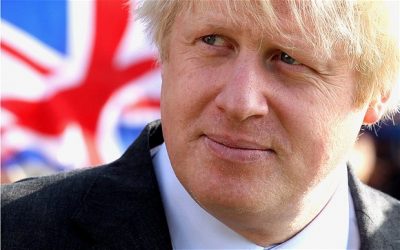UK MPs Block No-Deal Brexit

UK Prime Minister Boris Johnson’s agenda was rejected in the first three parliamentary votes on his watch — a hugely inauspicious start to his premiership, leaving his status shaky.
On Tuesday by majority vote, MPs took control of parliament’s agenda, usually the government’s prerogative.
On Wednesday, majority MPs blocked a no-deal Brexit and snap elections.
Note: MPs voted by a 298 to 56 in favor of October 15 snap election, the date Johnson proposed — 296 MPs abstaining or not voting, well short of a 434 super-majority needed for adoption.
According to the 2011 Fixed Term Parliament Act, a two-thirds majority is needed to approve a snap election. It can also be held following a majority no-confidence vote by MPs.
Johnson vowed to leave the EU by October 31 with or without a deal, what most MPs and Brits oppose, including 21 Tories, expelled from the party by BoJo for opposing a no-deal Brexit.
He no longer has a ruling majority. Legislation passed Wednesday by a 327 – 299 majority requires him to seek a three-month Brexit extension to end of January if no deal with the EU happens by October 19 — approval by Brussels required.
Frustrated by three parliamentary defeats, he said
“(i)t is completely impossible for the government to function if the House of Commons refuses to pass anything the government proposes.”
Note: March 29 was the original Brexit deadline, postponed until April, then October 31, perhaps end of January next.
On June 23, 2016, Brits voted by a 52 – 48% majority to leave the EU, the issue unresolved over three years later.
Delaying Brexit requires approval by a House of Lords majority, likely no later than Friday, and Queen Elizabeth, the latter most often a formality.
New elections are likely ahead, when uncertain. When held, they’ll be a second Brexit referendum,
Polls now show more Brits against than for Brexit most voters oppose, fearing its disruptive effects without a deal.
Labor leader Jeremy Corbyn said he’ll support snap elections once a no-deal Brexit no longer is an option, adding:
“The reality is deeply unpalatable: a disastrous no-deal Brexit to take us into the arms of a trade deal with Donald Trump that would put America First and Britain a distant second.”
According to former MP George Galloway, stopping a no-deal Brexit appears certain, adding:
“Unless something dramatic happens in the House of Lords – which can’t be ruled out, because they intend to sit all night and filibuster this bill.”
On Thursday, House of Lords Labor peer Philip Hunt tweeted the following:
“Government ends filibuster in the Lords. Agrees Brexit Bill will complete passage in the Lords by 5.00 pm Friday.”
Chances are a no-deal Brexit is off the table, though nothing ahead is certain.
Since becoming prime minister on July 24, Johnson achieved no parliamentary victories, three dramatic defeats on his core objective — delivering Brexit, leaving him weakened, heading a minority government.
According to UK academic Jon Tonge, he’s gotten “the shortest honeymoon in British political history. Boris Johnson is in a terrible mess.”
He considers himself a “sensible, moderate” Tory leader. Others call him divisive, hardline and devious, never to be trusted.
UK journalist Patrick Cockburn accused him of trying to engineer
“a slow-moving coup d’etat in which a right-wing government progressively closes down or marginalizes effective opposition…concentrates power…by stifling parliament, denounc(es) its opponents as traitors to the nation, displac(es) critics in its own ranks, and purg(es) non-partisan civil servants,” adding:
Johnson is “a demagogic nationalist populist authoritarian leader (who assumed) power through quasi-democratic means, and makes sure that he cannot be removed.”
Cockburn compares him to Turkey’s Erdogan. Others call him a UK Trump.
DJT loves him, calling him “a friend of mine…Boris knows how to win. Don’t worry about him.”
Ordinary Brits have plenty to worry about — ruled by hard right politicians, force-feeding them austerity like in the US, France, and other Western countries.
In July, Tories chose Johnson as prime minister over Jeremy Hunt by a two-to-one margin — despite no popular mandate.
Theresa May resigned after failing three times to strike a deal with Brussels on Brexit.
Johnson’s hardline agenda is worse. House of Commons Speaker John Bercow called him a “constitutional outrage.”
What’s coming ahead remains very much uncertain.
*
Note to readers: please click the share buttons below. Forward this article to your email lists. Crosspost on your blog site, internet forums. etc.
Award-winning author Stephen Lendman lives in Chicago. He can be reached at [email protected]. He is a Research Associate of the Centre for Research on Globalization (CRG)
His new book as editor and contributor is titled “Flashpoint in Ukraine: US Drive for Hegemony Risks WW III.”
http://www.claritypress.com/LendmanIII.html
Visit his blog site at sjlendman.blogspot.com.

